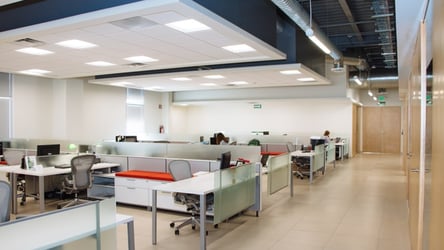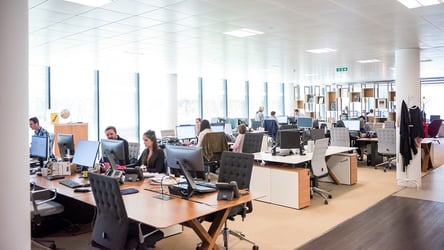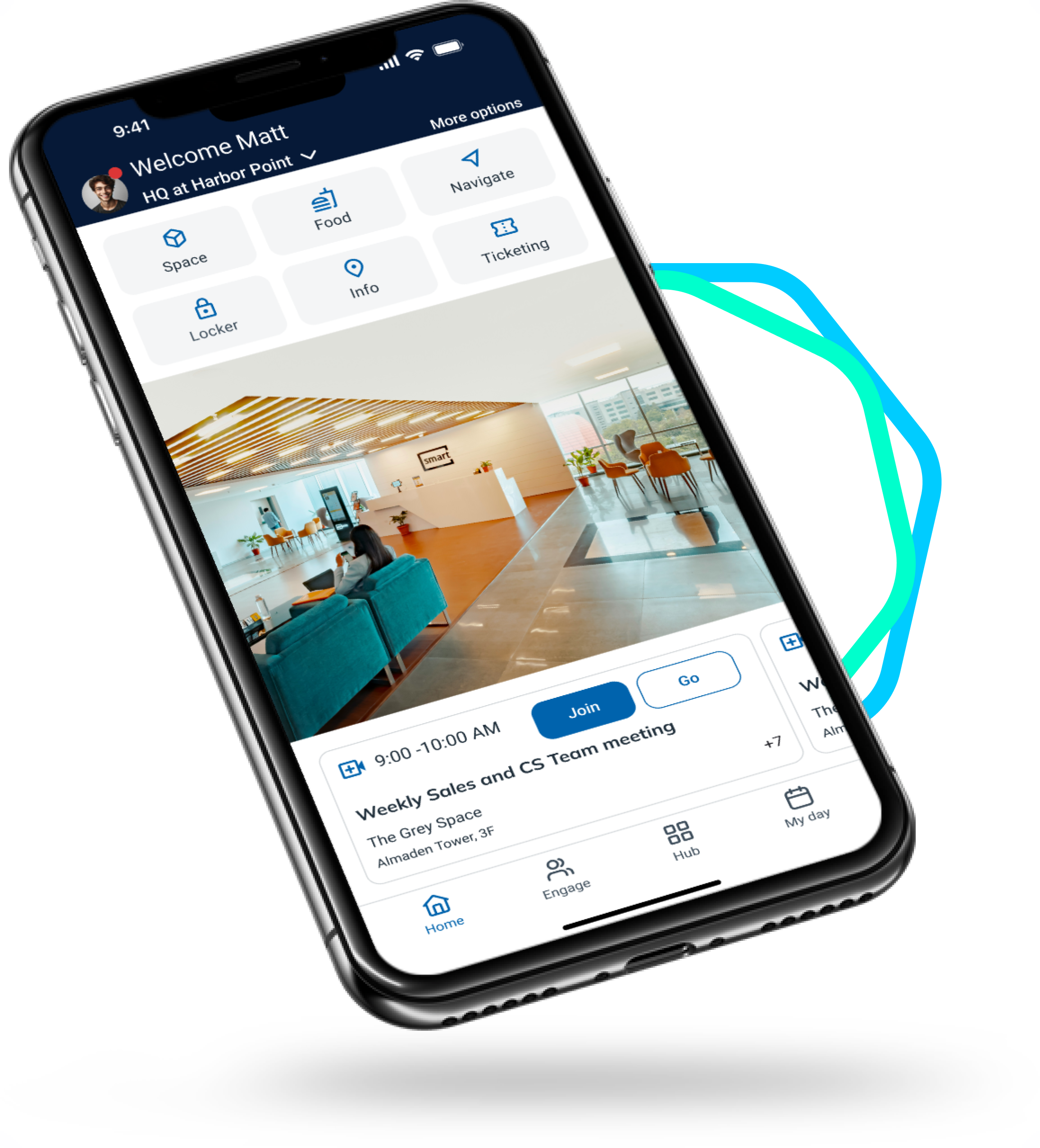Great News for Meeting Profs and Employee Engagement!
Digital transformation is driving the future of work in the enterprise. Physical spaces are being augmented by digital technologies, making them more efficient.
Smart spaces and work environments help boost employee experience by encouraging open communications and efficiencies. This cuts down on confusion and wasted time. The average employee will spend far less time on tedious and repetitive tasks when their very work environment is plugged into a smart, contextually-aware system.
The workplace of the future will combine indoor navigation and wayfinding, personalized messaging, contextual interactions, and integrated space management use cases such as conference room and desk booking to boost productivity and mirror on the-go-experiences.
An Experiential Approach to Business Interactions
The adoption of digital communications tools continues to evolve as phone conversations and face to face meetings are losing ground, decreasing by 30% and 44%, respectively. Other tools like instant messaging, work-based social media and collaboration platforms are on the upswing, increasing at rates of 62%, 69%, and 70%, respectively.
Yet these more popular tech applications have a downside too: it can be hard to keep track of all the different platforms. The future of work is all about uniting communications systems, both online and offline.
Simplify Meetings
To illustrate how smart spaces will simplify tasks for employees, let's take a look at conference room booking. Routinely planning meetings certainly gets tedious. It puts a drag on a meeting planner's or employee's schedule and mental energy.
The smart office presents a more streamlined operation for users, starting with digital improvements and extending to the physicality of the rooms themselves. In the new environment, the planning phase will be seamless. Users will be given advanced insights about a meeting space and the surrounding environment, so that they can create better meeting experiences for their teams and customers.
"Contextually-aware" is key. This type of smart system will present all relevant information as it is needed, before a user even needs to ask. In the instance of conference room booking, the system will factor in historical user data and preferences, and combine it with other information, like a room's size. This data is then used to build personalized experiences - even when users are on-the-go.
Additionally, an experiential workplace system opens up opportunities to engage with users who didn't show up. When someone misses a meeting you can provide them with critical information, because you know exactly what they missed. This gets them up to speed with everyone else.
The benefits are clear. Smart spaces result in more streamlined operations. In turn, that results in employees who feel more efficient and therefore engaged. Engaged employees are 87% less likely to leave their employers than those who are not.
Book A Room On-The-Go
Teams also gain access to more advanced functionality.
Meeting planners and employees will be able to book a room from a desktop computer or on-the-go via a mobile device. But it's so much more nuanced than booking, say, a hotel room.
When you search for an available room, you can sort by traits like time or date, room capacity and location. You can also specify more pertinent details like the proximity to certain facilities or resources. If you know the meeting needs to happen close to an executive's office, you can factor that into a search. You can even look for things like available amenities, such as whether or not the space has a projector, video conference system, and other tools.
It doesn't stop there.
Get To Where You Need To Be
Applied wayfinding technology kicks in, not just to inform you that you're running late for a meeting, but also to give turn-by-turn directions. No more wandering aimlessly around a venue trying to find your designated meeting room(s). The system knows exactly where you need to go, what time you need to be there and how much time it will take you to traverse the distance. All of this information is relayed to you — and your team — in real-time.
Welcome to the Office of Tomorrow
Conference room booking is only one example. Imagine the future workplace experience. All tasks will be equally intuitive and convenient. Collectively, it will be like a well-oiled machine with all individual components working cooperatively for a cohesive digital workplace strategy. It's the future of work.

.png)

.png)


.png?width=450&height=250&name=Blog%20Thumbnail%20-%20Delegate%20Desk%20Booking%20(1).png)




